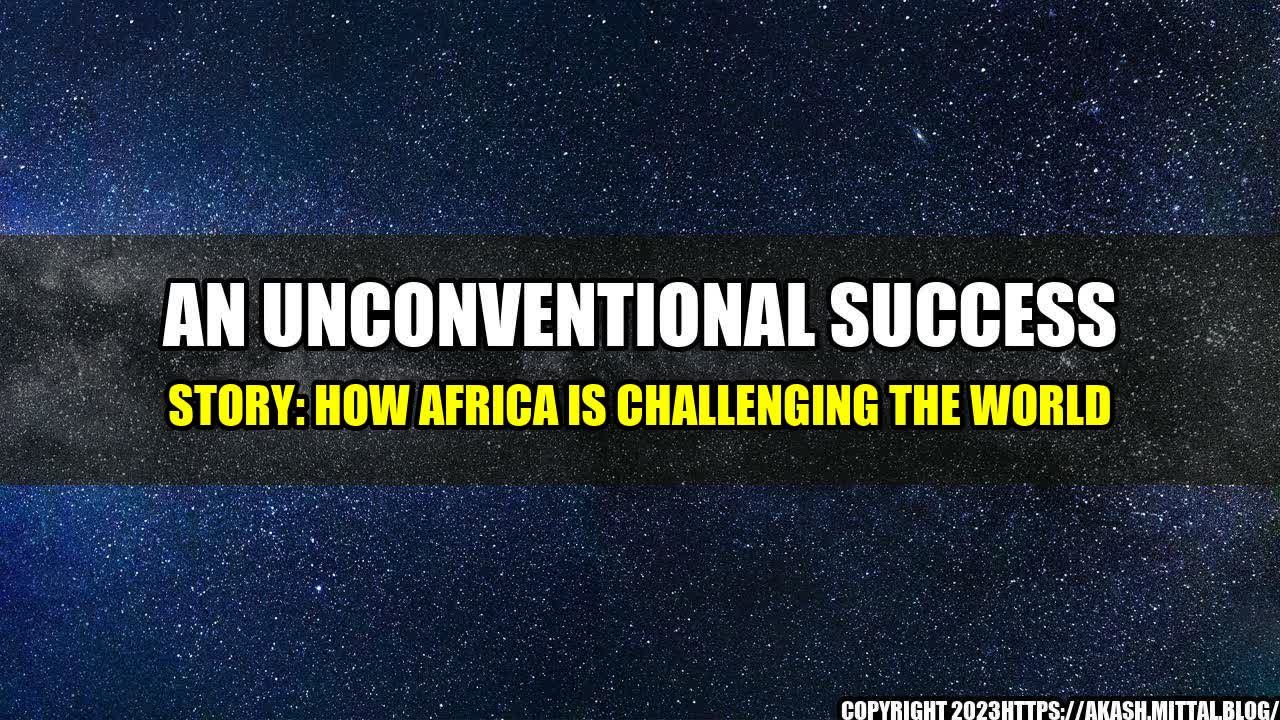
Once a forgotten continent, Africa is now making headlines because of its promising economic growth. The continent's leaders are increasingly confident, having gained the trust of foreign investors and international organizations, and are now exploring new ways to further boost their economies.To learn more about Africa's future and its current challenges, I watched the recent High-level United Nations Web TV program entitled "2023 Africa Dialogue Series". The virtual event featured African leaders, entrepreneurs, and policymakers discussing the continent's transformation, and how it can sustain its growth momentum amidst the current global challenges.
The discussions revealed that the African continent's economy is poised to continue its upward trajectory, as recent macroeconomic indicators show. The IMF predicts that Africa's GDP will grow by 3.4% in 2021 and 4% in 2022, compared to a -4.4% GDP decrease globally. These figures reflect the significant strides that African countries have made in recent years, with some of the highest growth rates in the world.
This success is a result of several factors, including sound macroeconomic policies, increased private sector investment, and entrepreneurial innovation. Despite having less-developed infrastructure and low levels of access to finance, the continent has proven to be fertile ground for innovation, especially in the tech sector. M-Pesa, a Kenyan mobile banking app, is a striking example. Its success has inspired similar innovations across the continent and allowed many unbanked people to access financial services.
Despite the significant progress, African economies are still vulnerable to external shocks, such as the COVID-19 pandemic. The crisis has led to lower investment flows and decreased demand for African commodities. The continent's leaders, therefore, must find ways to mitigate these challenges and build more resilient economies than ever before. In addition, they must address various other issues, including poverty, food security, and climate change.
The discussions showed that Africa's leaders are aware of these challenges and are taking steps to address them. Business leaders and policymakers are developing innovative solutions to drive investment, generate employment and promote economic growth. These efforts include establishing industrial parks, investing in renewable energy, and increasing regional integration through trade agreements such as the African Continental Free Trade Area.
The discussions further stressed the importance of digitalization in Africa's growth story. Several African countries have made significant progress in digitalizing various sectors, including health, education, and agriculture. In Ethiopia, the Ministry of Health has integrated digital health services into its health system, allowing remote access to health services. Rwanda is one of the countries where the government has been leading the way by digitizing several government services, reducing bureaucracy and corruption.
Furthermore, the speakers highlighted how private sector players are leveraging digital platforms and services to expand their businesses and reach new markets. In Kenya, the mobile-based ride-hailing app, Little, established an online marketplace called Little E-commerce that connects consumers with products and services from local vendors. In Nigeria, digital payment platforms like Flutterwave and Paystack are providing more secure and convenient payment options for businesses and consumers.
In conclusion, Africa's journey toward economic growth is both a success story and a work-in-progress. Africa's leaders, businesses, and entrepreneurs are well-positioned to continue the continent's upward trajectory amid significant regional and global uncertainties. Here are three key takeaways:
Africa is fast becoming a preferred destination for foreign direct investment, as the continent's market potential grows increasingly attractive to foreign investors.
Digitalization is fast-changing the African continent and creating new opportunities in several sectors.
Africa's resilience to various challenges and the ability of its leaders to respond proactively to these challenges will determine the continent's future.
Africa's transformation story is far from over, and there is still more work to be done. However, its leaders are stepping up to ensure that the continent's economic trajectory is sustainable, inclusive, and resilient.
Curated by Team Akash.Mittal.Blog
Share on Twitter Share on LinkedIn